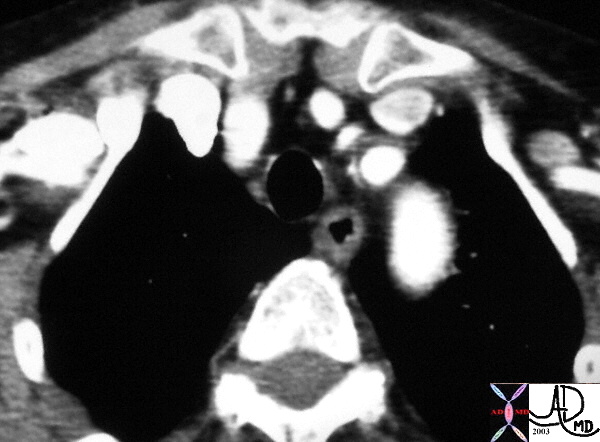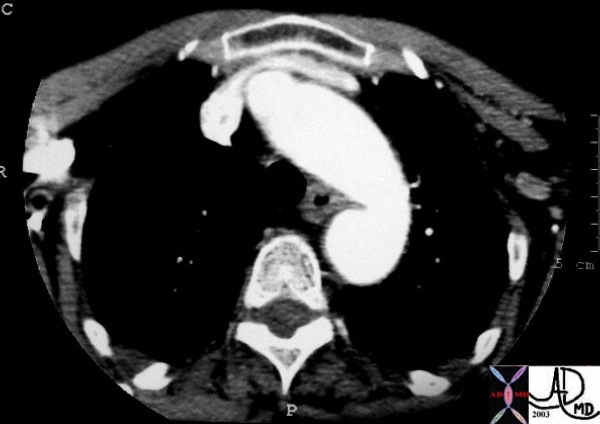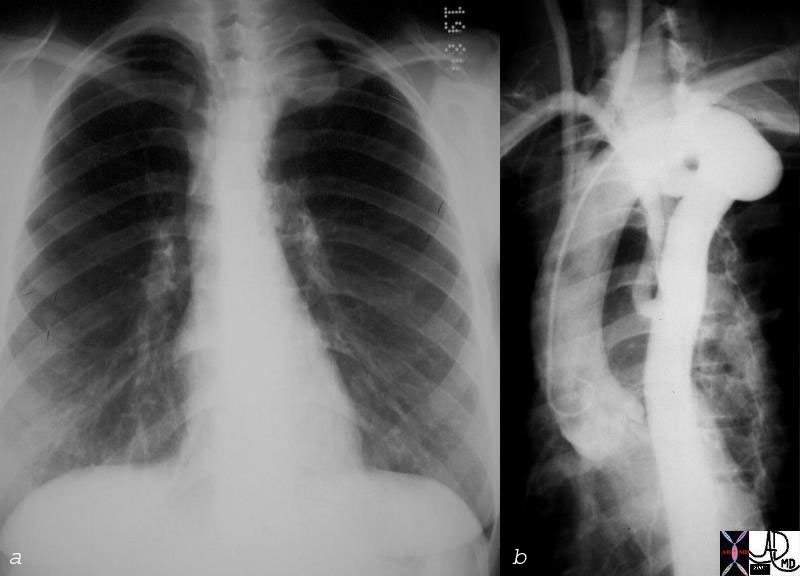|
Pseudocoarctation of the Aorta Copyright 2008 Definition Pseudocoarctation of the aorta is a narrowing of the aorta that has both congenital and acquired forms. Its is caused by kinking or buckling of an elongated thoracic aortic arch distal to the origin of the left subclavian artery without meausarable gradient. Asociated diseases include a cervical arch, bicuspid aortic valve, VSD, PDA, and it is also seen in middle aged men with hypertension. Diagnosis is made by angiography, CT or MRI where the kinking of the proximal thoracic aorta, in the absence of the a measurable gradient is noted. Plain film may suggest the diagnosis where a “three” sign reminscent of true coarctation in both the P-A and lateral can be seen. Rib notching is absent. There is no therapy needed since there is no functional abnormality.
|



